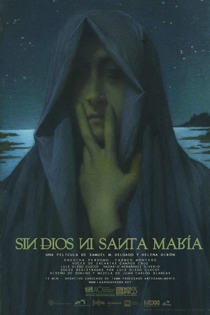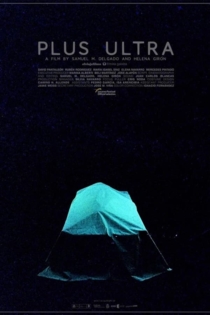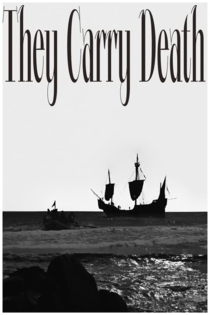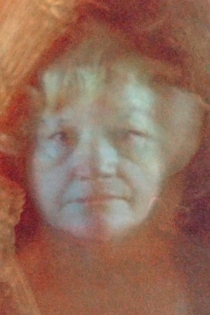
Helena Girón
1988 (38 лет)Sin Dios ni Santa María
Samuel M. Delgado, Helena Girón
Enedina Perdomo, Carmen Montero
“Since airplanes did not exist, people moved around using prayers; they went from one land to another and returned early, before dawn. In old audio recordings, the voices of pastors speak of the mythical existence of witches and their travels. In the daily life of a woman, the magic of her tales begins to materialize as night falls. Night is the time when travel is possible.”—Samuel Delgado & Helena Girón
Neither God Nor Santa María

Plus Ultra
Samuel M. Delgado, Helena Girón
David Pantaleón, María Isabel Díaz Lago
"Plus Ultra" is the motto of the Spanish state. This slogan was used to encourage navigators to conquer new territories and to forget the warning from mythology: "Non Terrae Plus Ultra" (there is no land beyond here). The Canary Islands, testing ground for the tactics used during the colonization of the Americas, becomes the setting for a tale about this land.
Plus Ultra

Eles Transportan a Morte
Samuel M. Delgado, Helena Girón
Xoán Reices, Valentín Estévez
1492. Among the crew led by Christopher Columbus travel three men who by now should have been dead. They managed to avoid their sad fate by participating in this uncertain journey. After reaching the Canary Islands they flee taking with them one of the ship's sails. Meanwhile, in the "Old World", a woman tries to save her dying sister by taking her to a healer. Both of these trips attempt to make fun of death. Both of these trips are at the mercy of history
They Carry Death

Last Night I Conquered the City of Thebes
Helena Girón
“Last Night I Conquered the City of Thebes” begins with Antonio and best friend Jota, 16 or 17, who, one cold Winter afternoon, visit some Roman baths. At nightfall, when people have gone and there is no trace left of a contemporary world, Antonio confesses to Jota that he’s afraid they are no longer fronds.
Last Night I Conquered the City of Thebes

Irmandade
Samuel M. Delgado, Helena Girón
A Irmandade of ghosts hides beneath the layers of time. Through Vasco da Ponte’s illustrated manuscripts, we search for a mythical past: one that resonates in a subterraneous form amongst a landscape full of invisible presences that are activated and take on a life of their own each time we think about them.
Irmandade
